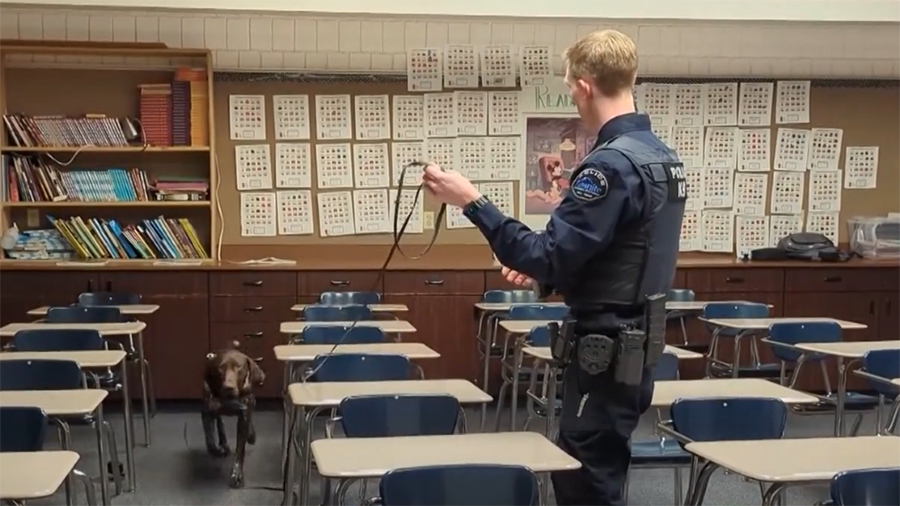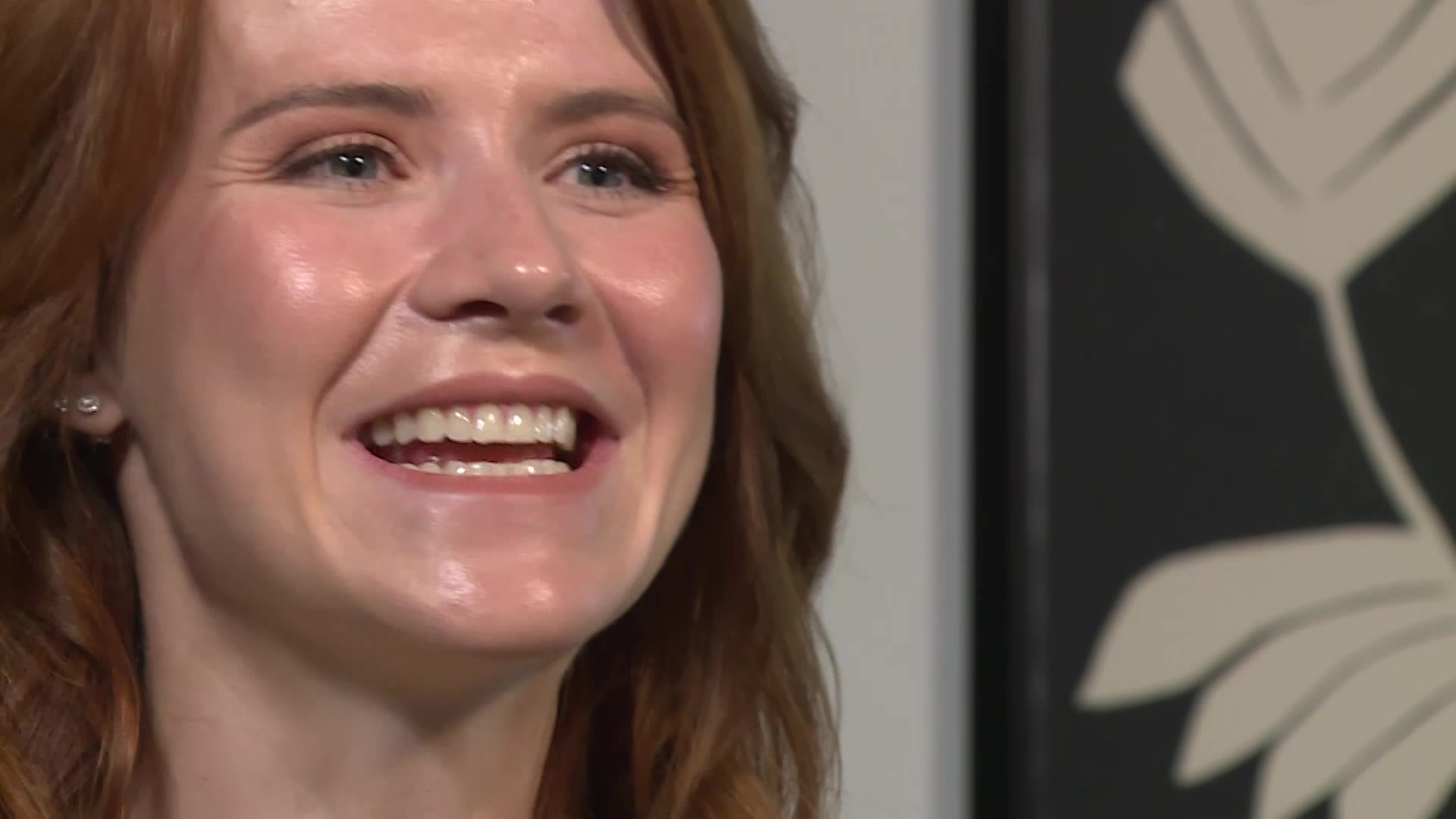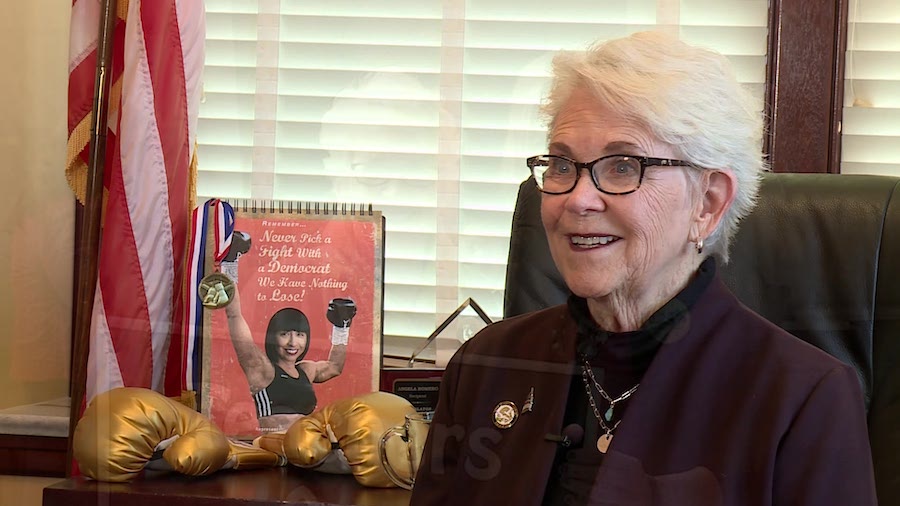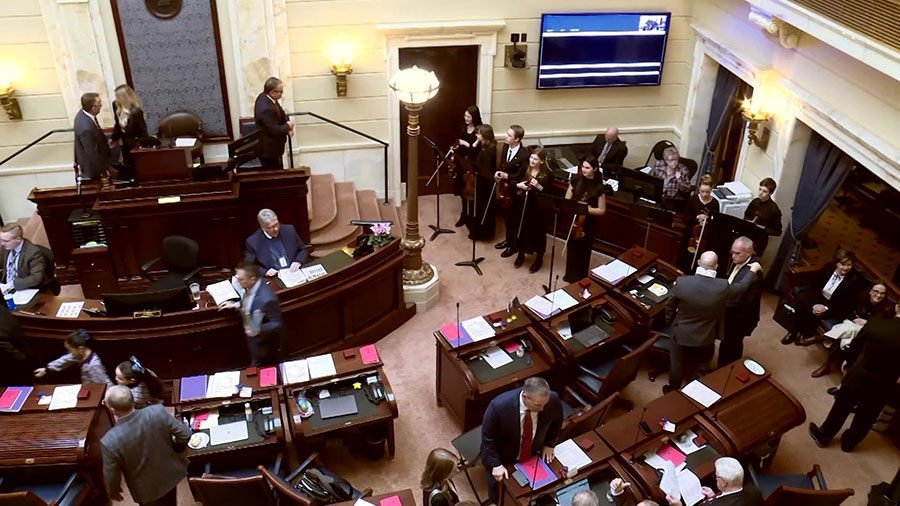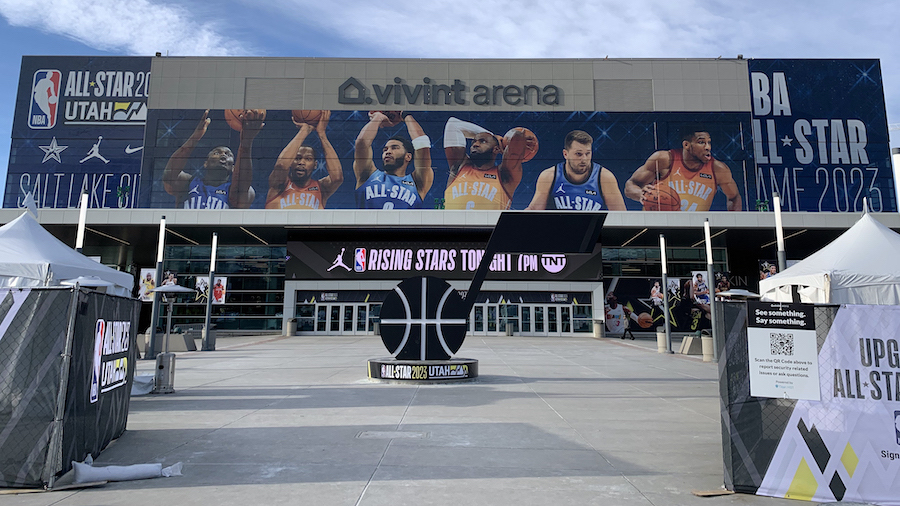KSL+: Deep Dive Into the Critical Race Theory Debate
May 20, 2021, 7:00 PM | Updated: Jun 3, 2021, 3:59 pm
The country is abuzz discussing the merits or dangers of a academic lens called Critical Race Theory.
“It’s kind of a head scratcher for many scholars who do work in critical race theory, because it has been around for quite a while,” said Edmund Fong, Associate Professor and Chair of the Division of Ethnic Studies at the University of Utah. “It’s not controversial in academia.”
The idea has been around for about 40 years. The Utah House and Senate were determined to tackle the topic in a special session this week. So what is critical race theory? And why is it all of a sudden such a hot topic issue?
Why we’re talking about it
In September last year, President Trump signed an executive order to ban any diversity and inclusion training in federal offices that include “Divisive Concepts,” “Race or Sex Stereotyping” and “Scapegoating.” According to the American Bar Association, more than 300 trainings were cancelled because of the order and more than 120 civil rights organizations condemned the order. Some even sued, saying it violates free speech, equal protection, and due process. President Biden rescinded the order the day he took office. But several nearly identical bills banning “critical race theory” have started popping up in states around the country in the last few months. And some Utah republican lawmakers want to see the teaching banned in state schools.
To be clear, Critical Race Theory is not being taught in K-12 classrooms in Utah, and there are no plans to do that. This week Governor Cox said he agreed that the theory had no place in our curriculum. But he refused to put the issue on the special session agenda, saying it should wait for the regular session where “it would benefit from more time…and dialogue.” Still, lawmakers called an extraordinary session so they could consider a a resolution urging the State School Board to prohibit critical race theory in schools. A resolution has no legal standing here.
Earlier this week, News Specialist Tania Dean at KSL-TV sat down with several experts in the fields of education and racial studies to understand what this theory is and, what it ISN’T.
Here’s her conversation with Darlene McDonald, a Utah author and activist.
Editor’s note: interview lightly edited for clarity and readability.
Tania Dean: Have you studied critical race theory quite a bit?
Darlene McDonald: I have not studied critical race theory as a academic scholarship. No, I have become like most people familiar with critical race theory over the course of the last year also as it become part of the our news cycle, basically. So that was up to me to actually start studying. This has been a discipline that has been around since 1970. So it is not new.
Tania Dean: So explain to us, for those of us who do still have a hard time, what does it mean exactly?
Darlene McDonald: Critical Race Theory is a framework that is used by it, actually started out in legal professions to understand racism, and especially racist policies that impact systemic racism within our institutions. And one of the examples that I like to use because it’s easier to understand, and there’s a lot of study that has been done about this is interest rates. It is known and has been part of many, many studies, that when African-Americans apply for car loans, mortgages, many have been charged higher interest rates than their white counterparts. This is reflective of institutional racism within our financial institutions. And it also impacts on generational wealth because it impacts the personal wealth of African-Americans. This is something that people who study critical race theory will look at, they will look at the laws within financial institutions that will allow something like this to happen. And so why this is important and how this ties into, let’s say, the 1619 Project that also gets tied into the myths of critical race theory, when you have stories about African-Americans about being charged higher interest rates for homes, in the same neighborhood, or the same type of house, or making the same type of wages and have the same income, the same credit score as their white counterparts, but they’re being charged a higher interest rate that becomes a story. And a story is what the 1619 Project is–just a collection of stories based upon the experiences of African-Americans and just the African-American experience in general, that reflected racism and racist policies throughout the years. That’s that’s what that was. That’s the connection and the intersection between those two and why they get tied together.
Tania Dean: Okay, so looking at it from a school perspective, because that’s where our focus sort of has become. What’s your opinion on that?
Darlene McDonald: Teaching critical race theory in high school and elementary school? No, it’s not intended for that. It is not meant for those ages because it is a legal basis for systemic racism within our institution. How are you going to teach that to a five year old? You can’t teach that to a five year old. But what we can do is by teaching honest, diverse history as part of our curriculum in our schools. What I will say on how you can marry the two is when you teach in history, let’s say about the Fourth of July. We love the Fourth of July, the fireworks, the barbecue, the ice cream, the red, white and blue. Well, on the Fourth of July, when the Declaration of Independence was adopted, July 4, 1776, it did not include people like me. It did not include African-Americans, because African-Americans were enslaved people. And we couldn’t even call ourselves people at that time, they will not treat it as people. So when the Declaration of Independence was adapted in 1776, you also have a abolitionist Frederick Douglass that gave a phenomenal, famous speech on the Fourth of July Independence Day about why the Fourth of July Independence Day doesn’t mean the same thing to black Americans, because black Americans were not free on July 4, 1776. So it’s a totally different perspective. These are the things that we can teach in our schools. But it’s not critical based. But it is an understanding and appreciation of real American history. And not just from an African-American perspective as well. You also have to look at our Native Americans, when we teach about Christopher Columbus. Christopher Columbus Day is a day of mourning for our Native American brothers or sisters. Why is that? Because when Christopher Columbus [discovered] the Native Americans, he actually murdered millions of Native Americans, took Native American girls to Spain and sold them as sex slaves. This is not part of our history lesson that is being taught in school, you probably won’t have to say the sex slave part to a five year old, but we can draft it so that it’s a respectable history, and based on real history, so that becomes a safe space for everyone. Everyone.
Tania Dean: That makes that makes complete sense. Thank you for explaining it that way. So the push for critical race theory, there are there is a need to change, in your opinion, some of our curriculum and some of the way that things are taught, especially history.
Darlene McDonald: Yes. And that is what the Biden administration put forth. That was the proposal that Representative Chris Stewart was speaking to, when he wrote his op-ed in the Deseret News. There was a proposal that was put forth by the Biden administration on April 9th, trying to give priority to curriculums that would speak to the diversity and also multicultural and ethnic voices for history lessons. That’s what it was. And Chris Stewart translated that to mean that the administration was pushing critical race theory in public schools. That is not true. It is based, what I just said to you, is what the Biden administration is trying to do with public education is to make sure that we bring in more diverse voices and perspective so that we get a more accurate history told to our future generations so that we don’t continue to have the sins of our past. That’s what this is about.
Tania Dean: So opponents of this…are just misunderstanding what it’s all about?
Darlene McDonald: Opponents of this are misunderstanding this, but that misunderstanding is intentional. We have to be very, very, very clear about that. These sort of things drive elections. And if you have a populace that is given disinformation, something such as critical race theory, people vote on fears, and these fears, drive elections. So we have to be clear that people are being intentionally misled about critical race theory, to drive an election that there really isn’t a better way of saying that we have to educate ourselves on what’s happening. We have to be very mindful about disinformation in our media. And we have to be very clear about the media that you consume, so that you make sure that you’re not getting biased information that is intended to sway elections, based on fear.
Tania Dean: Many states I think maybe up to eight states have either banned or have legislation on the test. Able to ban critical race theory? What’s your opinion on that?
Darlene McDonald: The same thing, it’s the same thing. I believe all of these states are predominantly red states, with Republican legislature. And I don’t want to make this a totally partisan issue. Because this information can also impact everyone. It doesn’t matter what political stripe you’re on, you can be persuaded by disinformation. So I don’t want to make it totally a partisan issue. But we have to educate ourselves to the truth and not be afraid to speak the truth, even if it’s uncomfortable, and other people may not agree with what you’ve said, the truth is out there. And you do have to know where to go look for it. And be careful about bias media that will try to basically spread disinformation about critical a spirit.
Harvard Law Professor Kimberlé Crenshaw coined the phrase Critical Race Theory in the 70s, as a way for legal scholars to look at how racism has shaped our legal systems. Like we’ve said the theory is not being taught in Utah schools. Still, Republican lawmakers thought it was urgent enough to bring up in a special session this week.
“There are issues of race that absolutely need to be discussed in our classrooms,” said Speaker Brad Wilson. “Racism has been, and still is, unfortunately, part of the culture we have. Those issues should be discussed in the right way.”
He said he would ensure our public schools teach the important issue surrounding race in an appropriate manner. Utahns, not federal bureaucrats should be in charge, he said, of what is taught in our schools so our students learn how to be respectful, engaged members of society.
“How I understand is it is an academic theory, or a lens, if you will, for a way of looking at things,” said Mark Peterson, public relations director of the Utah State Board of Education. “You can apply critical race theory to history to economics, to current events, and it’s a lens through which to see those those things.”
Here’s more of what he had to say about the push to ban the theory that’s not being taught from Utah’s classrooms.
“As a subject matter, no, it is not part of this state Core Standards. The board’s focus is on the students, and what is best for each student to succeed in school. And what we’re looking for in this is equity. What concerns us about critical race theory and possible measures to regulate it is, for teachers, that it be very well defined, so that when a teacher starts discussing race bias, when a teacher starts discussing, Jim Crow laws, the civil rights movement of the 60s, if they’re in an economics class, what redlining means and how that came across, that the teacher understand where the discussion can go without crossing into critical race theory. Because state standards, still you have to understand slavery in the United States, you have to understand the Civil War, you have to understand the civil rights movement. These are all part of our social studies standards. But they don’t have to be aligned with critical race theory, which again, is a lens for viewing those. But the fact that those exist in history is something teachers, particularly history teachers have to be able to discuss in class.”
But some experts, like Edmund Fong from the University of Utah, worry this focus on Critical Race Theory could change the way teachers discuss things like the Civil War, the Civil Rights movement, and other racial justice movements, even the ones happening now.
“I think what I’ve seen from some of these bills in other states around critical race theory is they’re often very broadly sort of phrased, and they end up kind of targeting not just critical race theory, but targeting any efforts to try to enhance diversity, or say, provide training around biases that we all might have racially. And that would really be bad. I think that would really have a chilling effect. We’ve made a lot of strides over the past few decades around racial equity, justice and inclusion around diversity. And so the fear is that bills like this don’t just stop with critical race theory, the phrase itself, but they really try to target and turn back the clock on many of these efforts to build a more inclusive educational curriculum.”
In a townhall meeting this week, State School Board member Natalie Cline used this slide, with things she says are part of Critical Race Theory; topics like anti-racism, equity, diversity, and inclusion, multi-culturalism, and explicit and implicit biases.
The topics may be helpful in understanding critical race theory, but Fong says these are not critical race theory and are important parts of building schools that are welcoming to all.
I'm on the Critical Race Theory Town Hall with Scool Board member Natalie Cline Rep. Steve Christiansen and Keven Stratton. Ms. Cline said, “the school to prison pipeline. They aren’t looking at the actions of students but race. Not data."
This is 100% FALSE pic.twitter.com/dMskPYu5wZ— Darlene McDonald (@VoteDarlene) May 19, 2021
“I think there are really valuable efforts and it’s often hard work trying to get people to talk about their race, [and] get people in dialogue with one another. And that often gets emotional and heated. Some of what I see is kind of the fear about critical race theory is that the idea that that is fomenting that divisiveness but the divisiveness is out there. And the only way we’re going to get to a better place is if we’re able to sort of talk with one another honestly and earnestly about it. And that is what I think ultimately might be at stake with these two bills [is] the ability to reason kind of have serious, honest, often difficult conversations around race. It’s not easy for those of us who do sort of educate people and foster those conversations because it does get emotional.”

